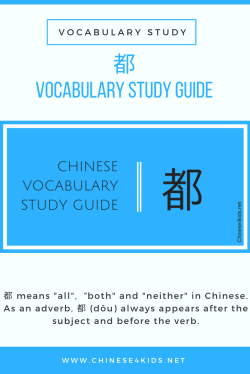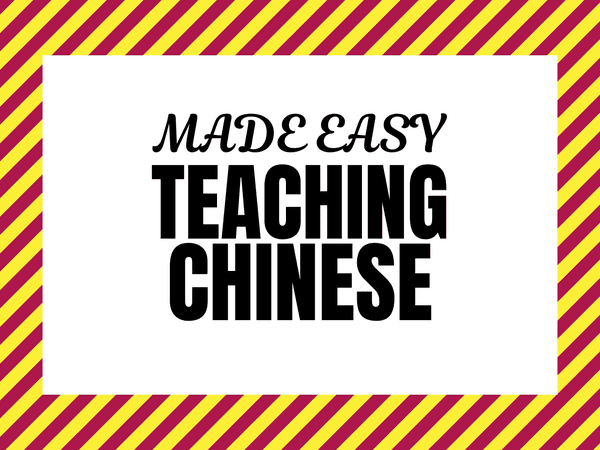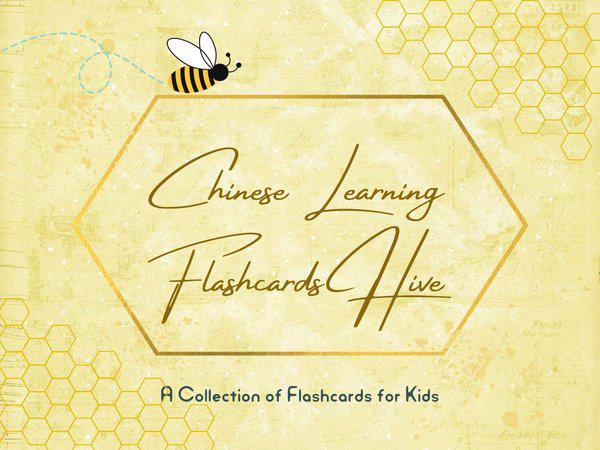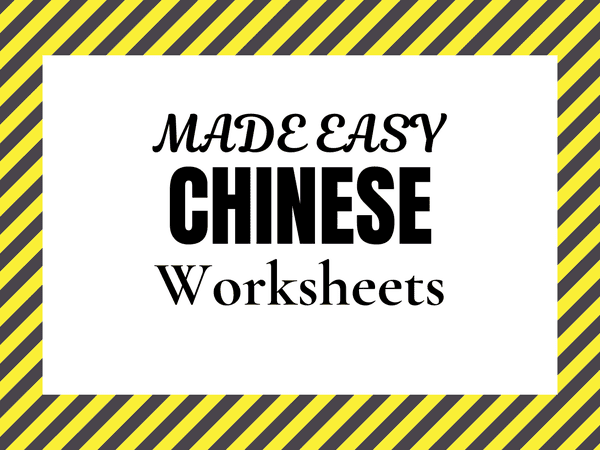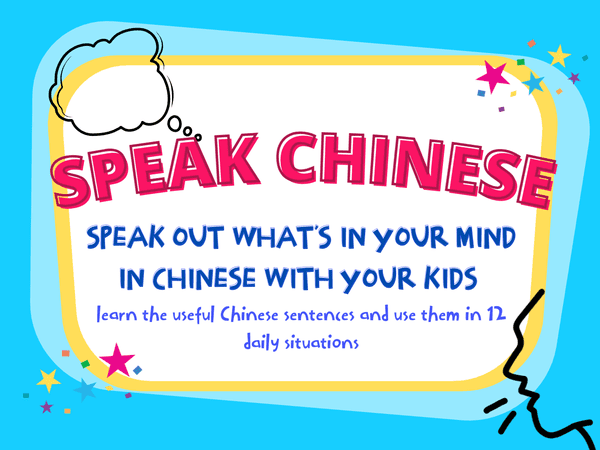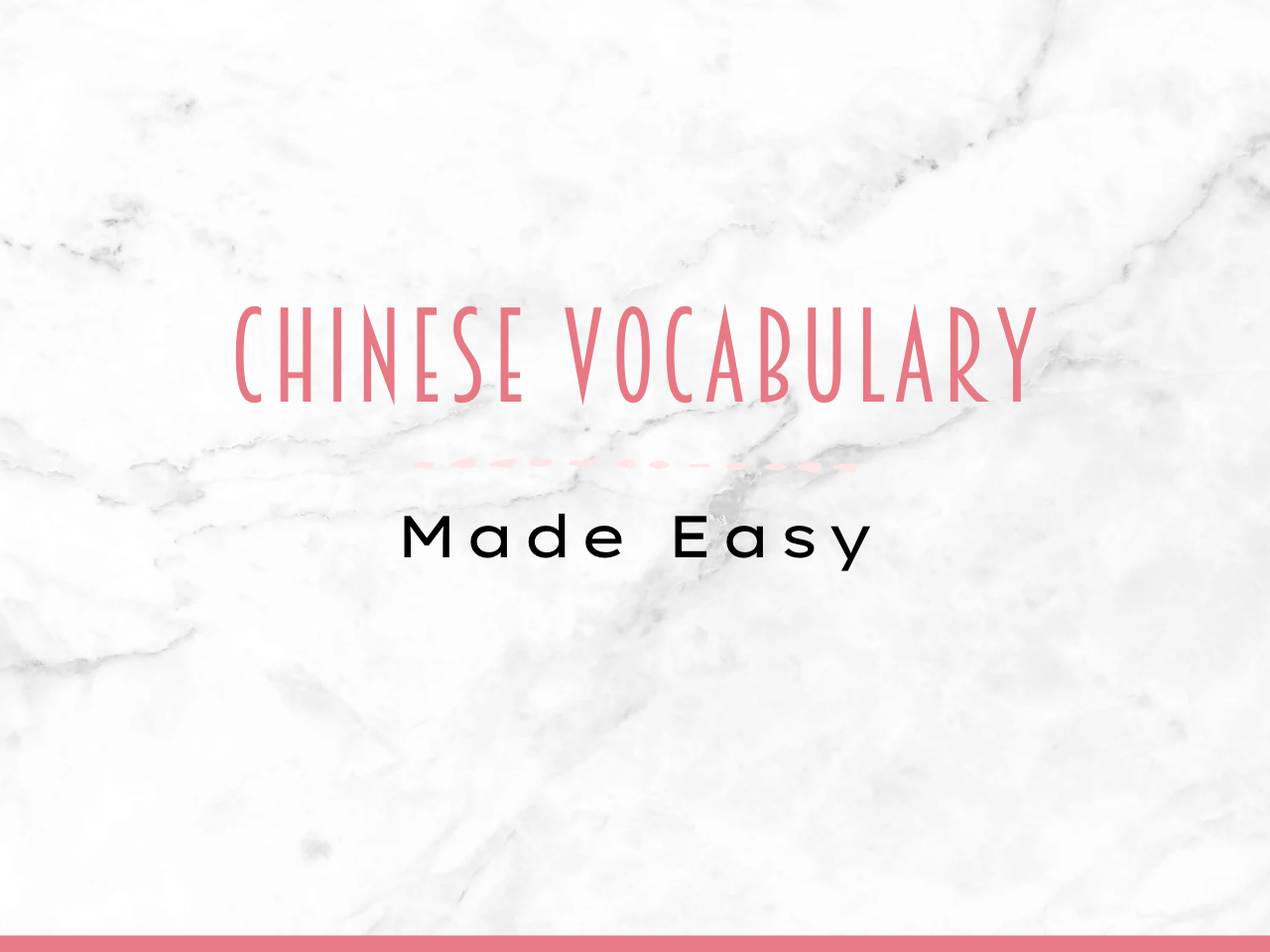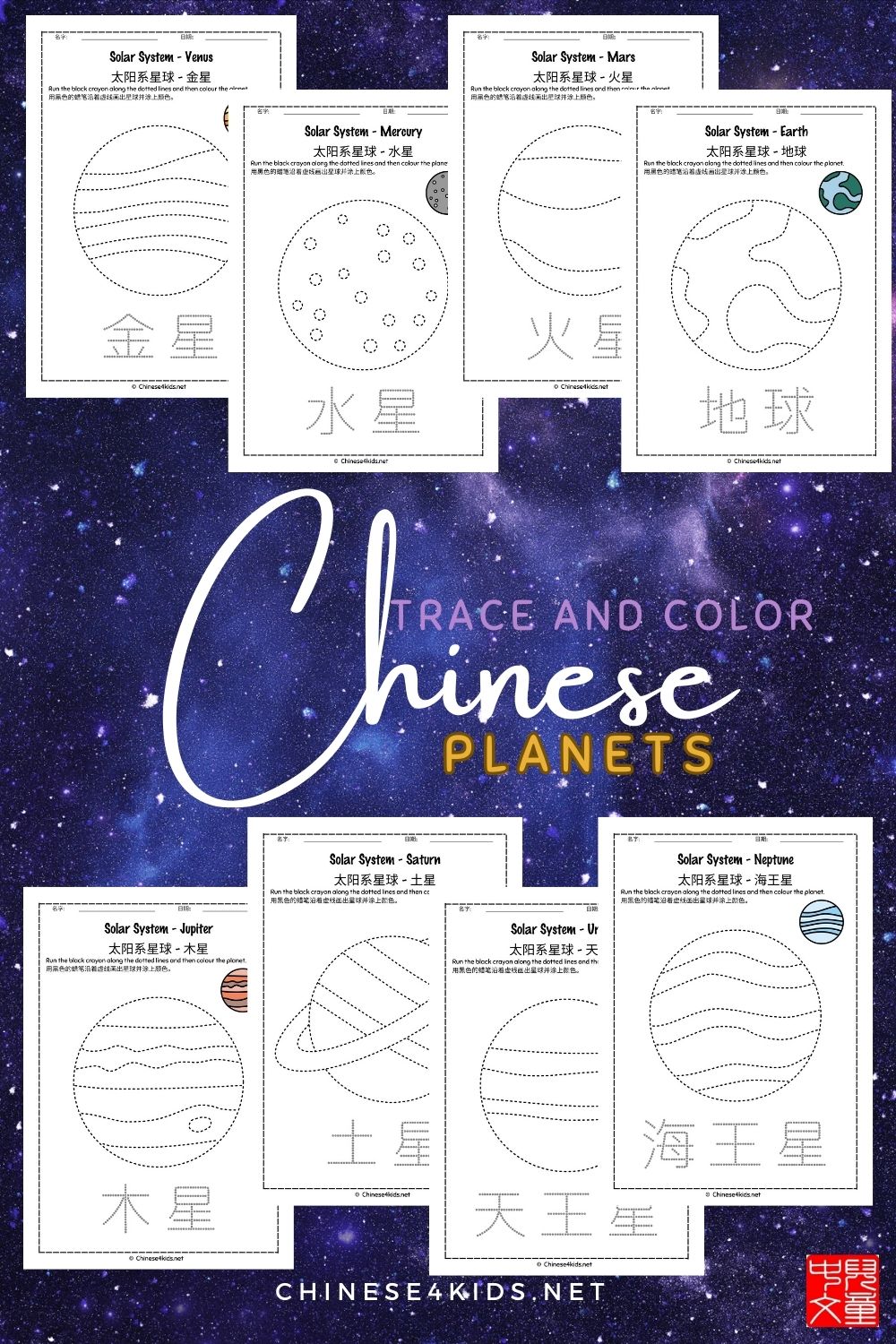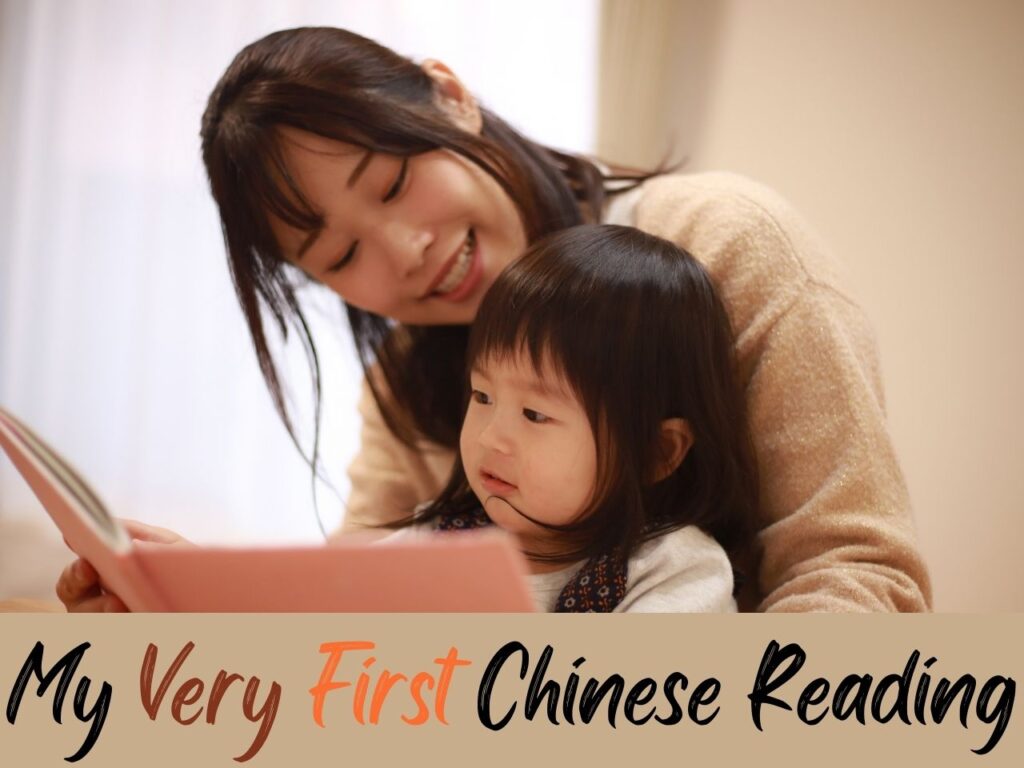
Chinese Vocabulary Study Guide – dou 都
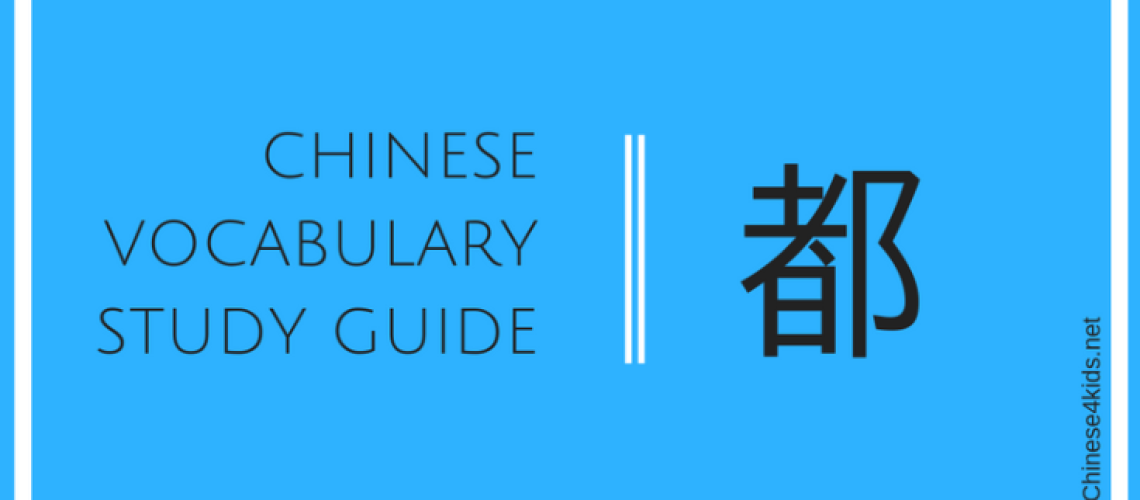
都 is one of the commonly used characters in Chinese. Literally it means “both” and “all”. This Chinese Vocabulary Study guide you 都 features the basic grammatical rules on how to use the word with many useful examples.
葡萄和苹果,我都喜欢。
This sentence can be translated into English as “Grapes and apples, I like both. “
As you have guessed out, 都 (dōu) means “both” in this case.
Have a look at the sentence below:
葡萄, 香蕉和苹果,我都喜欢。
This sentence is “Grapes, bananas and apples, I like all of them.”
Here, 都 (dōu) means “all”.
In Chinese, as an adverb, 都 (dōu) always appears after the subject and before the verb.
都 (dōu) refers to “ALL”
Sentence Structure
Subj. + 都 + Verb / [Verb Phrase]
For example,
我们都喜欢吃中国菜。
Wǒmen dōu xǐhuān chī zhōngguó cài.
We all like to eat Chinese food.我们都是学生。
Wǒmen dōu shì xuéshēng.
We are all students.我们都住在北京。
Wǒmen dōu zhù zài běijīng.
All of us live in Beijing.他们都会去图书馆吗?
Tāmen dūhuì qù túshū guǎn ma?
Will all of them go to the library?
都 (dōu) refers to “BOTH”
Sentence Structure
Subj. + 都 + Verb / [Verb Phrase]
As you can see, the structure is identical to the one for “ALL”. We need to remember, Chinese does not normally have a specific word for “both” like English does. So if the number is greater than one, it is safe to use “都”.
For example,
爸爸妈妈都爱你。
Bàba māmā dōu ài nǐ.
(Both) Daddy and Mommy love you.他们两个都是上海人。
Tāmen liǎng gè dōu shì shànghǎi rén.
Both of them come from Shanghai.我们都很好。
Wǒmen dōu hěn hǎo.
Both of us are doing well.他和他妻子都在工作。
Tā hé tā qīzi dōu zài gōngzuò.
Both he and his wife are at work.
都 (dōu) in negative case
In English, when the sentence is negative, instead of both, we use “neither”. In Chinese, we use the same word 都 (dōu).
Sentence Structure
Subj. + 也 + 都 + Verb / Adj.
For example,
Neither he or his friend likes big cities.
他和他的朋友都不喜欢大城市。
Tā hé tā de péngyǒu dōu bù xǐhuān dà chéngshì.Neither Mr Wang or Ms Zhang has been to USA.
王先生和张女士都没有去过美国。
Wáng xiānshēng hé zhāng nǚshì dōu méiyǒu qùguò měiguó.
都 (dōu) and 也 (yě) together
To express that some people have something in common with the others, we can combine both 都 (dōu) and 也 (yě). 也 (yě) should always be placed before 都 (dōu).
Sentence Structure
Subj. + 也 + 都 + Verb / Adj.
For example,
我们是学生,你们也都是学生吗?
Wǒmen shì xuéshēng, nǐmen yě dū shì xuéshēng ma?
We are students. Are you all students too?你的两个孩子都是男孩,我的三个孩子也都是男孩。
Nǐ de liǎng gè háizi dōu shì nánhái, wǒ de sān gè háizi yě dū shì nánhái.
Both of your children are boys, all of my three children are boys too.我们也都喜欢这本书。
Wǒmen yě dū xǐhuān zhè běn shū.
We all like this book too.
If you like this post, PIN IT!
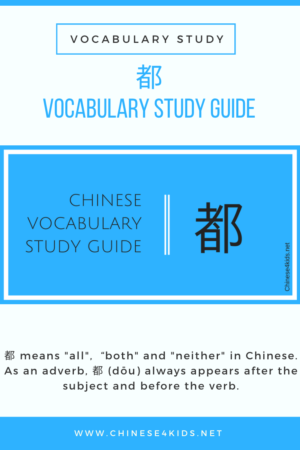
You may find the guide in
CHINESE VOCABULARY STUDY GUIDE BOOK I
You May Also Be Interested:
- Chinese4kids Membership – a portal for busy Chinese teachers and parents
- Chinese learning flashcards Hive – a flashcards library that with regular additions of new quality Chinese learning flashcards
- Chinese learning worksheets collection – Also a part of Chinese4kids membership, this collection is for teachers and parents who want to have access to engaging worksheets and activity sheets created for kids learning Mandarin Chinese as an additional language
- Speak Chinese with Kids Course
You May Also Be Interested:
- Chinese4kids Membership – a portal for busy Chinese teachers and parents
- Chinese learning flashcards Hive – a flashcards library that with regular additions of new quality Chinese learning flashcards
- Chinese learning worksheets collection – Also a part of Chinese4kids membership, this collection is for teachers and parents who want to have access to engaging worksheets and activity sheets created for kids learning Mandarin Chinese as an additional language
- Speak Chinese with Kids Course
- Chinese Vocabulary Made Easy Course
Recent Posts
Join Our Membership
Enroll to A Course
Buy An eBOOK
Our Posts
